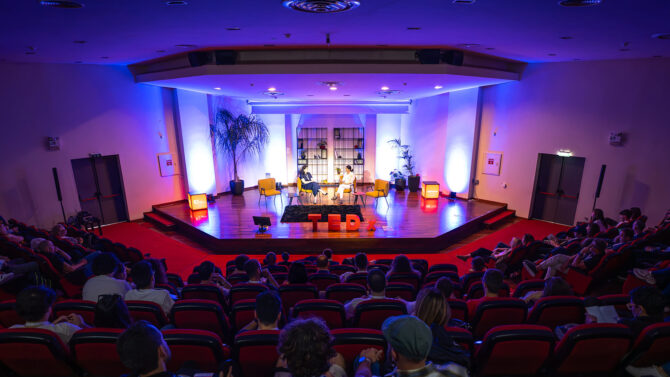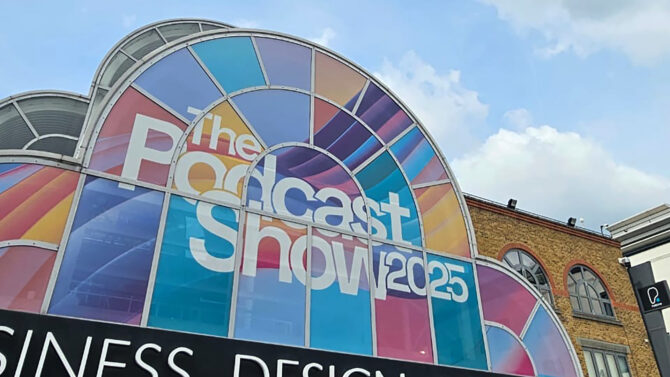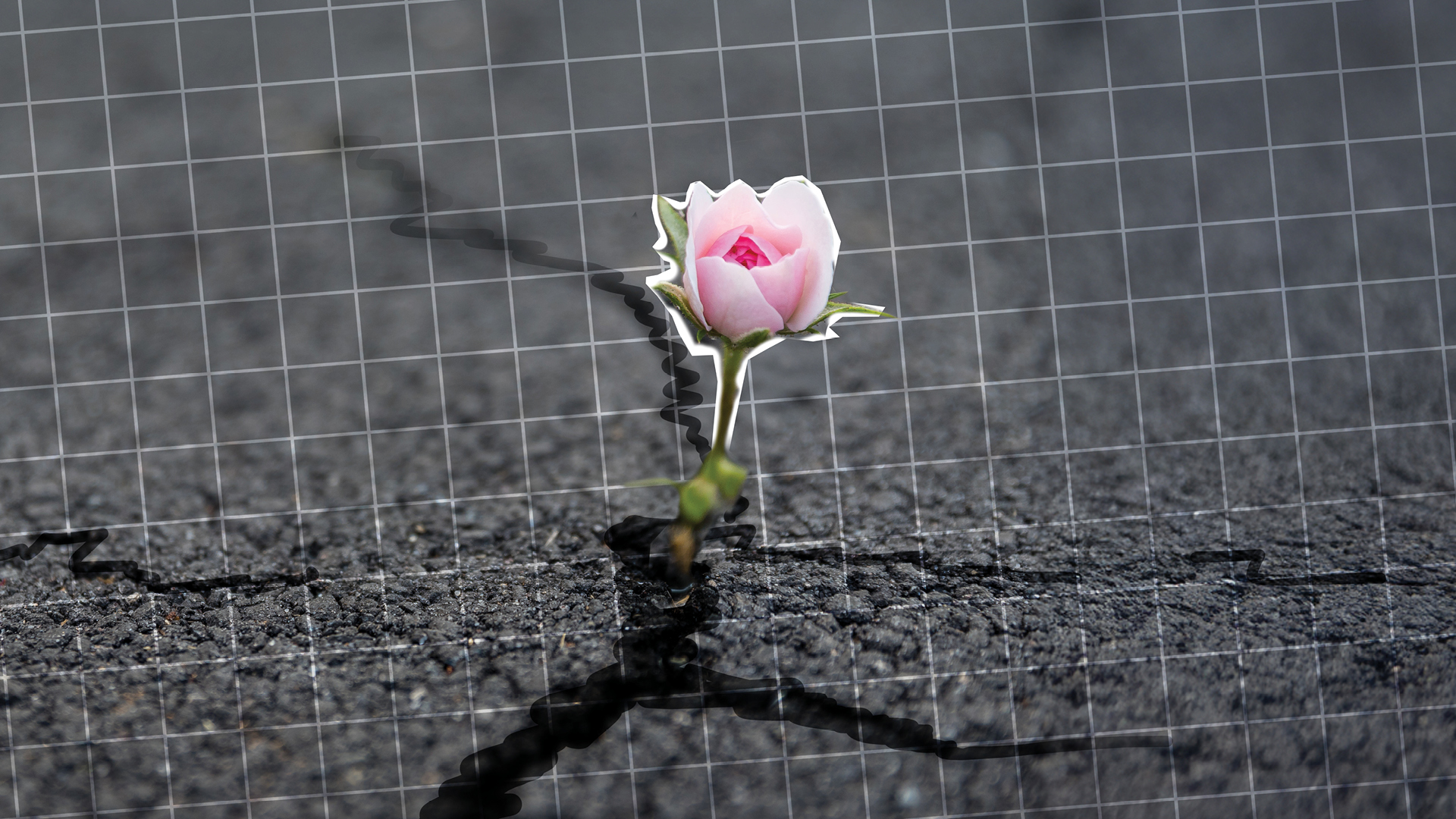How resilient is Gen Z, really? What everyday challenges does it face, and how does it perceive and express them?
These are the questions explored in Gen Z & Resilience, a new podcast series born from the collaboration between iMEdD and the Advertising and Public Relations Lab (ADandPRLab) of the Department of Communication, Media and Culture at Panteion University. This initiative offered students the opportunity to take on the role of researchers and content creators, delving into the challenges and mindset of their generation over the course of several episodes. Through the voices of the student participants, critical issues for Gen Z come to the fore — from mental health and modern relationships to navigating online hate and facing job insecurity.
How Young Audiences Are Reshaping the News

At TEDx Patras, Mitali Mukherjee highlighted the disconnect between news outlets and young audiences, urging efforts to rebuild trust.
Betty Tsakarestou, Associate Professor and Director of ADandPRLab, explains the philosophy behind the thematic focus:
“We could also call Gen Z GenR (Generation Resilience) and GenS (Generation Sustainability). Our starting point was UNESCO’s studies and reports ‘Empowering Next Generations for a More Resilient Future’, as well as Gen Z’s own need to shape terms of sustainability and security for their communities.”
The podcast series functioned as “an exercise and experience in personal reflection,” as Prof. Tsakarestou put it, where the research process, expert interviews, and group discussions deepened students’ collective understanding of resilience.
Stavros Kaperonis, Assistant Professor and coordinator of the ADandPRLab, highlights the importance of experiential learning:
“Students had to work under real production conditions, facing challenges in storytelling and technical editing. Being part of a professional environment helped them develop adaptability and perseverance.”
iMEdD supported the project by providing tools and methodologies for professional audio production and journalistic storytelling. As Prof. Tsakarestou notes:
“Podcast storytelling is a meeting ground for communication, journalism, public relations, and technology.”
Participants gained not only technical skills, but also personal ones — the ability to listen, reflect, collaborate, and empathize.
“On a professional level,” adds Prof. Kaperonis, “they developed skills in narrative construction, sound editing, and journalistic ethics. On a personal level, they learned to work in teams and manage deadlines.”
The choice of podcasting as an educational tool proved pivotal. As Prof. Tsakarestou explains:
“The power of podcasting lies in its ability to allow both creators and listeners to explore issues that matter to them, to reflect critically, and to develop independent thought — all while remaining socially connected.”
Now in its third year, the collaboration between ADandPRLab and iMEdD stands as a shining example of how journalism, education, and the new generation can come together to create authentic, meaningful narratives.
The Gen Z & Resilience podcast series is now available to stream on iMEdD podcasts, on Spotify and Apple Podcasts.
The Podcast Show 2025: 10 Things We Learned

Everything we saw and heard at one of the audio industry’s biggest gatherings (and beyond) in London.
What Gen Z Cares About: The Topics They Chose
Students spoke with peers, professionals, and experts while also sharing their own experiences. The interviews touched on living conditions, the desire for change, and the need to adapt to today’s realities.
To name a few:
- ADspire explored the connection between humor and mental health, focusing on memes:
“Given the rise in meme use as a coping mechanism — by us and our friends — we wanted to find out whether they genuinely foster resilience or simply offer temporary relief.”
- 4get us not focused on hate speech experienced by content creators on social media:
“[…] we decided to explore the phenomenon of hate speech and how Gen Z manages this reality, giving voice to content creators who have experienced online abuse […].”
- Inkspire. addressed overconsumption and how it affects Gen Z:
“We chose overconsumption as our topic because it’s part of our daily lives and a generational issue that directly impacts us.”
- DIGIFY explored career anxiety:
“This theme arose naturally from our own concerns as Gen Z preparing to enter the workforce. We feel intense anxiety about career growth and the balance between work and personal life […].”
Mental resilience was also linked to personal relationships and body image.
- NextGen tackled eating disorders and body image influenced by social media:
“We chose to address eating disorders […], which are often misunderstood or carry social stigma […]. We wanted to contribute to awareness and sensitivity around this issue […].”
- High Five Agency looked at the impact of idealized online relationships:
“We picked this topic because Gen Z grows up in a world where ‘perfect’ relationships are showcased online, creating unrealistic expectations […]. Our goal was to spark a meaningful conversation and help listeners understand that reality isn’t always what’s portrayed on social media.”
- Newave explored the concept of “situationships”:
“We aimed to understand why label-free relationships are so prevalent among Gen Z […], and to deconstruct stereotypes around nontraditional romantic dynamics […].”
- Mind the G.A.P. asked:
“Are we the generation that killed flirting? […] We noticed a trend toward emotional detachment and superficial, fleeting connections […].”
- Innovox Agency examined the “hookup culture”:
“[…] We were driven by a desire to understand the psychological and emotional impact of this culture […], which led us to explore the topic in depth […].”
- Floating Clouds drew inspiration from the “deinfluencing” trend, examining consumer pressure:
“We decided to address the issue of mental resilience in the face of harmful social media trends and the push toward overconsumption.”
Carefully selected music, an honest tone, personal stories, and original narrative formats — such as an “interview” with AI or guided meditations — were some of the creative techniques the students used to keep listeners engaged.
The students themselves described the process of creating their podcasts as a journey — not always straightforward or easy. From “rollercoaster” and “creative chaos” to “step by step” and “like building a bridge that keeps collapsing,” they spoke of a process filled with challenges, learning moments, and personal growth. Some experienced it as a “personal bet” or a tool to raise awareness on issues that matter to them, while others focused on the transformative power of creation and the need for authenticity in the voice of Gen Z.

